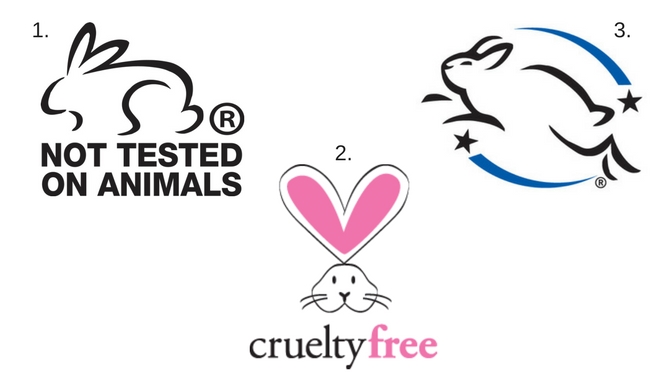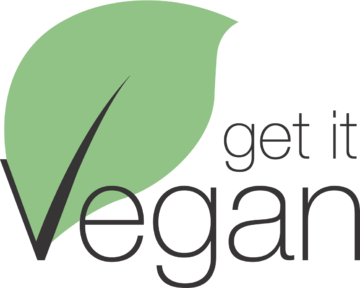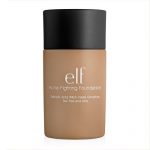Foundation
Vegan and cruelty-free foundation. Whether you're buying for yourself, or for the cruelty-free woman in your life, you can shop with confidence knowing that all of the makeup products we list on Get it Vegan, including the foundation found below, are 100% free of animal by-products, ingredients and testing.
Foundation
What is ‘vegan’ & ‘cruelty-free’ foundation?
The term “vegan”, with regard to liquid or powder foundation, refers to products that don’t contain ingredients that are derived or sourced from animals or insects, whereas the term “cruelty-free” refers to products that are free of animal testing, including the individual ingredients used in those products.
In other words, ‘cruelty-free’ refers to the ethics of testing methods, while ‘vegan’ refers to the origin of the foundation’s ingredients.
What animal and insect-derived ingredients are commonly used in foundation?
While it certainly isn’t exhaustive, we’ve put together a list of some of the most common animal and insect-derived ingredients that are used in non-vegan foundation, including some of their aliases, their uses in foundation, and some of their vegan-friendly alternatives.
Honey: A secretion gathered and stored by honey bees. Essentially, it’s food for bees, made by bees. Used as a colouring agent and an emollient (provides creaminess and staying power) in certain foundations.
- Aliases: Mel, Miel.
- Vegan alternatives to honey: Plant-based colours and oils.
Squalene: Typically derived from shark livers, it’s used in foundation and other cosmetics as a moisturizer, and for it’s reported anti-aging effects.
- Aliases: Shark Liver Oil; Squalane.
- Vegan alternatives to squalene: Plant-based oils, most notably olive oil and palm oil.
Hyaluronic Acid: Natural hyaluronic acid is typically derived from rooster combs. In iodination it’s used primarily as a moisturizer, and much like squalene, for its reported anti-aging properties.
- Aliases: Acide Hyaluronan, Hyaluronate Sodium, Hylan, Sodium Hyaluronate.
- Vegan alternatives to hyaluronic acid: Synthetic hyaluronic acid and plant oils.
Amino Acids: The building blocks of protein in animals and plants. Often derived from animal sources such as urine and horsehair. Used in foundations and other cosmetics as skin conditioning agents.
- Aliases: Tyrosene, Cystine, Glutamic Acid, Glutamine, Potassium Aspartate, Sodium Aspartate.
- Vegan alternatives to amino acids: synthetics, plant sources.
Beeswax: Beeswax is made from melting honeycomb with boiling water, straining it, and cooling it. It’s used in foundation as a thickener, and an emollient. It also happens that many bees are killed or have their wings and legs torn off because of haphazard handling when they are farmed.
- Aliases: Apic cerana, Apis Mel, Apis mellifera, Apis Mellifica, Cera Alba, Cera Flava.
- Vegan alternatives to beeswax: Candelilla wax; Soy wax; Sustainable carnauba wax, Cerecin.
Lecithin: A waxy substance in nervous tissue of all living organisms. It can be obtained from nerve tissue, blood, milk and corn, but frequently it’s obtained for commercial purposes from eggs and soybeans. Lecithin can be found in both liquid and powder foundation, and is used as a skin conditioner and an emulsifying agent.
- Aliases: Choline Bitartrate
- Vegan alternatives to lecithin: Soybean lecithin, Corn-derived lecithin, Synthetics.
Tallow: The process of making tallow involves boiling the carcasses of slaughtered animals until a fatty substance is produced. These carcasses can come from a myriad of unfortunate sources such as labs, slaughterhouses, zoos, shelters, and ‘roadkill’. Tallow and its derivatives are primarily used in foundation an emollient.
- Aliases: Tallow Fatty Alcohol; Stearic Acid; Oleic Acid; Linoleic Acid; Rendered beef fat.
- Vegan alternatives to tallow: Vegetable tallow, Japan tallow, Ceresin.
Watch Out! If a product says an ingredient is from “Natural Sources”, it can mean either animal or plant-based sources. Most often in cosmetics it means animal sources, such as animal elastin, glands, fat, protein, and oil.
Is “not tested on animals” the same as “cruelty-free”?
When shopping for foundation, you’re sure to come across of plethora of statements on labels that are used to subtly mislead you into believing that the foundation you’re buying is 100% cruelty-free.
Unfortunately, since these terms are unregulated, companies can essentially use them in any way they see fit, namely, to help sell their products.
For example, here are some common misleading statements you might find on the labels of foundation you’re buying at a drugstore or elsewhere, and what they actually mean:
“Against animal testing”
- This could mean that the company is opposed to animal testing, but does it anyways. Really, it's just words on a box, not proof.
“We don’t test on animals”
- This could mean the foundation you’re looking at was not tested on animals as a whole, but its individual ingredients were.
“Cruelty-free”
- Could mean anything. Without 3rd party verification, they’re expecting you to take it on blind faith. Oftentimes it’s an outright lie. Other times, the company might not even know what happens in its supply chain.
So then how can I be sure the foundation I’m buying is cruelty-free?
Despite the rampant deception in the world of cosmetics sales, there are several legitimate third party certification bodies that independently assess whether or not companies and products are actually abiding by recognized cruelty-free standards.
So, the best way to ensure that you’re buying a cruelty-free foundation is to find one with that has the approval of one of these third party certification bodies printed on it, by looking for one of their logos. 3 of the most common cruelty-free labels include:

- Choose Cruelty Free Ltd.
- PETA
- The Coalition for Consumer Information on Cosmetics - Leaping Bunny Program
Don’t be fooled! Because these certification bodies all use images of bunnies, so will scammers, which makes it easy to get duped into thinking what you're buying is certified cruelty-free. Make sure you spot a logo you recognize as legitimate 3rd party verification, such as those above.
What brands make vegan & cruelty-free foundation?
Foundation that’s both vegan and cruelty-free can be hard to find. Fortunately, the following brands exclusively make foundation that’s full vegan and cruelty-free, in other words, completely animal-friendly!
- 100% Pure
- ADORN Cosmetics
- Au Naturale Cosmetics
- Beauty Without Cruelty
- DeVita
- e.l.f. Cosmetics
- Elate Clean Cosmetics
- Gabriel Cosmetics
- INIKA
Please Note: This list does not include brands that have ‘vegan options’ for foundation; it only includes companies whose foundation products are completely vegan and cruelty-free.
Why should I buy ‘vegan’ & ‘cruelty-free’ foundation?
Aside from the ‘icky factor’ of having animal carcasses smeared on your face, it’s important to buy foundation that you know is vegan & cruelty-free because it creates demand for these types of products, reduces demand for non-vegan/non-cruelty-free products, and is thus a very effective form of animal-welfare activism.
Similar product categories
If you’ve found this page on vegan and cruelty-free foundation helpful, check out similar product categories to learn or shop more:
For companies that make vegan & cruelty-free foundation
If you make vegan and cruelty-free liquid or powder foundation, or any other vegan/cruelty-free cosmetics for that matter, we’d love to feature you and your products on the “Brands We Love” section of our site! Contact us at - info(at)getitvegan(dot)com - to get started!
Sources
Some of the information for this guide on vegan & cruelty-free foundation was gathered from the following sources:
- Living: “Animal-Derived Ingredients List.” (n.d.). PETA. Retrieved June 29, 2017. https://www.peta.org/living/other/animal-ingredients-list/
- Blog: “Are Your Cosmetics Vegan?” Kourtney Linebaugh (October 27, 2012). Gentle World. Retrieved June 29, 2017. http://gentleworld.org/are-your-cosmetics-vegan/
- Skin Care Myths: “13 Animal Products in Cosmetics.” Lorraine Dallmeier (n.d.). Herb & Hedge Row. Retrieved June 29, 2017. http://www.herbhedgerow.co.uk/animal-products-in-cosmetics/
- Resources: “Watch Out For These Cruelty-Free Labelling Loopholes!” Vicky Ly (July 30, 2015). Gentle World. Retrieved June 29, 2017. http://ethicalelephant.com/cruelty-free-loopholes/
- Lifestyle: “Vegan Beauty - Animal-Free Skin Care and Makeup.” Leah Payne (February 1, 2017). Alive.com. Retrieved June 29, 2017. http://www.alive.com/lifestyle/vegan-beauty/
- Find an Ingredient: “Aspartic Acid Beauty.” (n.d.). CosmeticsInfo.org. Retrieved June 29, 2017. http://www.cosmeticsinfo.org/ingredient/aspartic-acid

